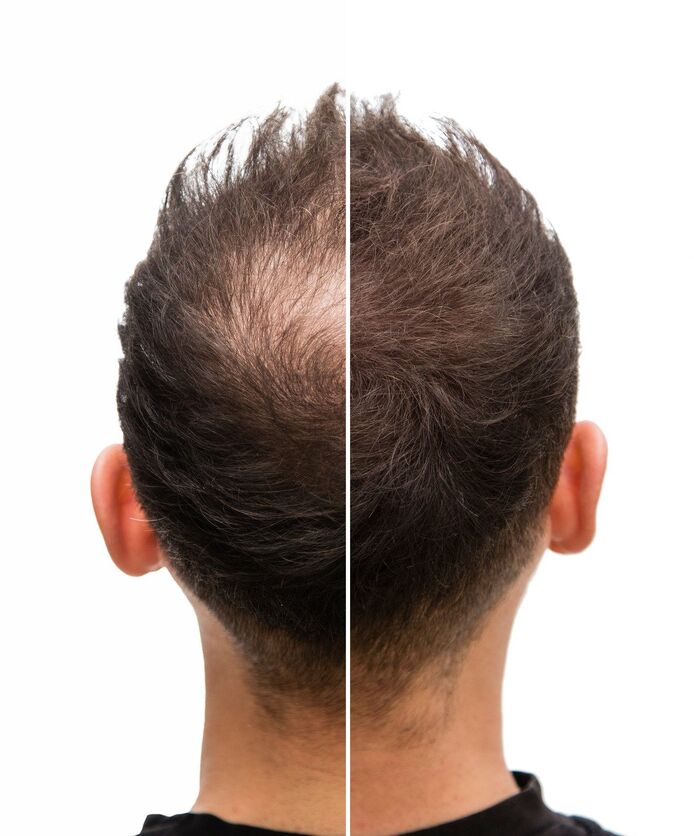Is it possible to maintain weight loss?

Many people have weight loss goals that involve reaching a certain weight, and having a plan in place to achieve that is key. But one thing that can slip under the radar at the planning stage is how you’re going to maintain your weight once you’ve reached your target.
Here, we explore what weight loss maintenance involves and how you can overcome challenges to achieve this yourself.
What is weight loss maintenance?
It’s no secret that losing weight can be hard. It takes time, effort and commitment, and some people find that diet and exercise alone aren’t enough. If that’s the case, weight loss medications can help with losing weight in a safe and sustainable way.
But once you’ve reached your target weight, the challenge changes slightly. Now, instead of trying to lose weight, you’re trying to stay the same weight. That’s where weight loss maintenance comes in - the efforts you make to try and maintain your new current weight. Techniques include:
- Maintaining a healthy diet and exercise regimen
- Developing coping strategies for stress that involve exercise or meditation rather than comfort foods
- Avoiding food-related guilt - being compassionate with yourself when you’re struggling can help to prevent a single slip-up from derailing all your hard work.
This can be difficult no matter what method you used to lose weight - in other words, whether you went to a weight loss group, did it purely through diet and exercise or used weight loss medications. In fact, according to Stanford Medicine, 80 to 85% of people who lose a significant amount of weight go on to regain it.
On the other hand, a study from the UK National Institute for Health and Care Research found that those who regained some weight still saw improvements in key health factors such as blood sugar levels, high cholesterol and high blood pressure.
So, it’s clear that making the effort to maintain weight loss has health benefits, even if you don’t keep off 100% of the weight you lost. That’s why weight loss techniques aim to build long term habits that help you to keep the weight off once you’ve reached your weight loss goals.
Is it hard to maintain weight loss?
As we’ve established, maintaining weight loss is hard. For many, it can even be harder than losing the weight itself. However, it’s not impossible, and knowing some of the struggles you might face can help you to be more prepared and may increase your chances of successfully maintaining weight loss.
Weight loss maintenance brings with it many of the same challenges of losing weight in the first place, particularly when it comes to developing a healthy exercise routine and diet or navigating social pressure at events and gatherings.
But there are some challenges that are exacerbated by weight loss maintenance as well.
Diminishing returns
From a psychological standpoint, weight loss maintenance could be seen as a ‘progress-less’ endeavour. During weight loss, you become accustomed to measuring your success through a number on the scale getting smaller. When you transition towards maintaining your weight loss, you don’t get the motivation of seeing your weight decrease through regular weigh-ins.
To combat this, it may be helpful to celebrate little milestones as you go. Instead of marking weight-based achievements like losing half a stone or being able to wear a smaller size of clothes, try acknowledging significant dates - for example, maintaining your weight for a month or three, or a year.
The weight loss plateau
One of the reasons weight loss maintenance can be difficult is that your body is naturally resistant to losing weight. This is what informs the weight loss plateau, which is where weight loss slows despite your efforts being unchanged, and eventually can lead to weight regain in the maintenance phase.
Two separate physiological changes can explain this: an increase in appetite and a slowing of the metabolism.
The endocrine system regulates a number of processes within the body including feelings of hunger and fullness. As you lose weight, the body can interpret this as not eating enough, even if you’re still consuming enough calories to cover your expenditure. In response, the endocrine system releases hormones to suppress the feeling of being full and give you a greater appetite, encouraging you to eat more.
At the same time, your energy expenditure will be lessened. That’s because losing weight reduces physical strain on the body - you use less energy for all kinds of biological processes including physical activity, so you burn fewer calories as standard.
When put together, this means that you feel more inclined to overeat while actually needing fewer calories. As a result, it can be difficult to maintain weight loss, though sticking to a healthy amount of calories despite hunger cues may help.
‘All or nothing’ mindsets
Another psychological factor affecting weight maintenance is the concept of ‘falling off the wagon’. For weight maintenance, this might look like overeating at an event or as a result of emotional stress - any kind of deviance from your weight maintenance plan can qualify.
Instinctively, most people experience feelings of shame or guilt if this happens, as they feel as though they have ‘failed’ in their goal to maintain their weight. But this kind of thought process is not productive and actively contributes to giving up on goals. This is commonly associated with thoughts like ‘I’ve already failed, so why should I bother trying?’
In reality, the best thing you can do if you’ve ‘fallen off the wagon’ is simply to get back on it. Accept that things didn’t go to plan and resolve to make the next step better aligned with your goals. In other words, chalk it up to a bad day and continue to take every opportunity you can to maintain your weight and the health benefits you’ve worked so hard for.
Weight loss maintenance is an ongoing, long-term goal, and there are bound to be bumps in the road along the way. But with support from healthcare professionals and proper preparation to help smooth the journey, you can take steps to limit weight regain and build healthy habits.
Further Reading
https://www.hopkinsmedicine.org/health/wellness-and-prevention/maintaining-weight-loss
Hall, Kevin D, and Scott Kahan. “Maintenance of Lost Weight and Long-Term Management of Obesity.” The Medical clinics of North America vol. 102,1 (2018): 183-197. doi:10.1016/j.mcna.2017.08.012 Available at: https://pmc.ncbi.nlm.nih.gov/articles/PMC5764193/
https://www.lboro.ac.uk/news-events/news/2023/july/seven-techniques-to-avoid-weight-regain/
https://stanfordhealthcare.org/medical-conditions/healthy-living/obesity/weight-loss-maintenance.html
https://evidence.nihr.ac.uk/alert/weight-regain-does-not-eliminate-the-long-term-benefits-of-weight-management-programmes/

What to Do About the Mounjaro Price...

Does Propecia work?

Switching from Mounjaro to Wegovy:...

What are the side effects of Propecia?

What is Propecia?

